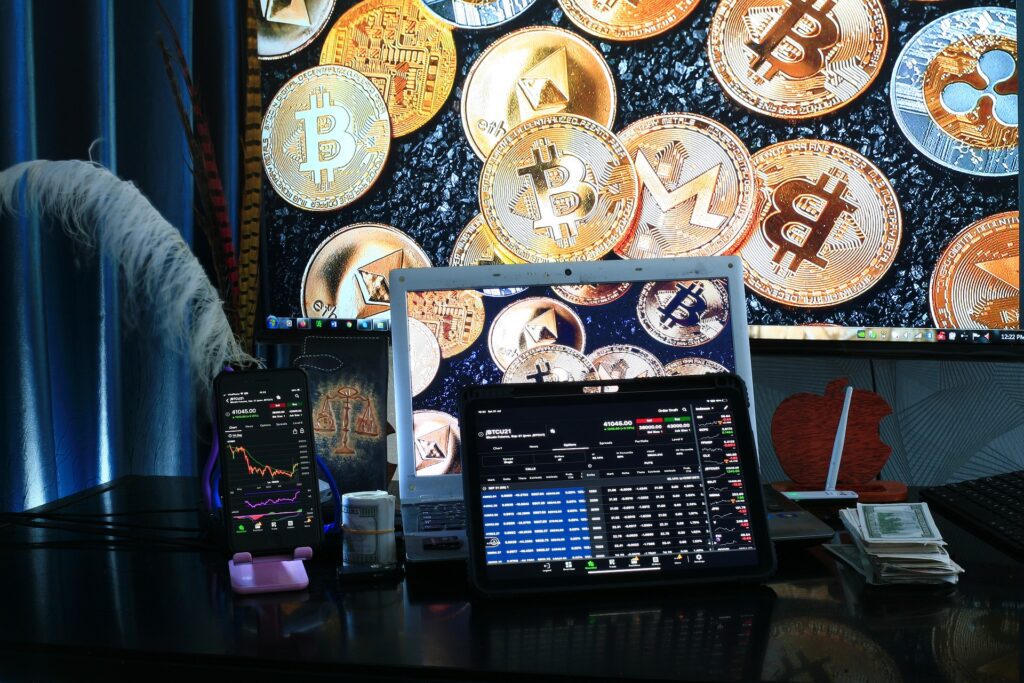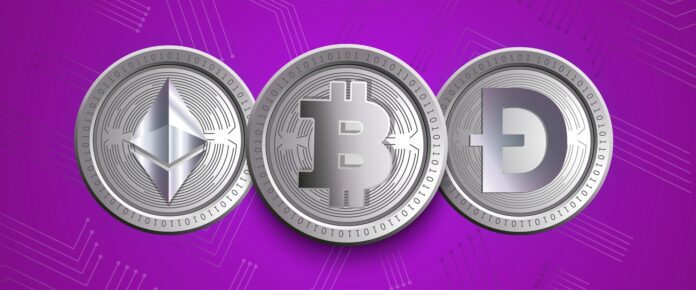Crypto tokens are digital assets/tokens that stays on a blockchain network. They are programmable units of value that can represent a variety of assets or functionalities. Crypto tokens are typically created and managed using smart contracts on blockchain platforms such as Ethereum.
Here are a few key types of crypto tokens:
- Utility Tokens: Utility tokens are designed to provide access to specific products, services, or functionalities within a decentralized application (DApp) or blockchain ecosystem. They enable users to interact with and participate in the platform. Examples include tokens used for voting, accessing premium features, or paying for transaction fees.
- Security Tokens: Security tokens represent ownership in a real-world asset, such as shares in a company, real estate, or traditional financial instruments like bonds or derivatives. These tokens are subject to securities regulations and provide holders with rights and entitlements, such as dividends, profit-sharing, or voting rights.
- Payment Tokens: Payment tokens, often referred to as cryptocurrencies or digital currencies, are designed to be used as a medium of exchange. They can be used for purchasing goods and services, conducting transactions, or transferring value between parties. Bitcoin (BTC) and Litecoin (LTC) are examples of payment tokens.
- Asset Tokens: Asset tokens represent physical or digital assets, such as commodities (gold, silver), real estate, artwork, or intellectual property. These tokens enable fractional ownership or investment in assets that might otherwise have high entry barriers or limited liquidity.
- Non-Fungible Tokens (NFTs): NFTs are unique tokens that represent ownership or proof of authenticity of a specific item or digital asset. Unlike other crypto tokens, NFTs are indivisible and cannot be exchanged on a one-to-one basis. They are primarily used for representing collectibles, digital art, virtual real estate, or in-game items.
Crypto tokens have gained significant popularity due to their potential for decentralization, transparency, and increased efficiency in various sectors. They offer new avenues for fundraising, tokenizing assets, and creating decentralized applications with specific functionalities. However, it’s important to note that the regulatory landscape surrounding crypto tokens varies by jurisdiction, and investors should exercise caution and comply with applicable laws and regulations when engaging with them.
Also read : Crypto coins vs tokens.
Owning a crypto token

Ownership of cryptoasset whether it is an cryptocurrency or a token, is secured with the person who has the private key that corresponds to the address with which the token is associated. This private key allows that person or the owner to create & sign transactions releasing the token and assigning it to someone else.
The rules of the blockchain require that if a token is to be sent, the transactions must include the digital signature related to the token’s current address.
The digital signature is validated by all of the blockchain network participants. The digital signature acts as a single point of authentication to signal that it really is the address owner who is making the payment instructions.
With Cryptoasset transactions must have a valid digital signature. if you lose your private key, you can not access your assets and you cannot have it reset. Let’s say if your private key is copied by someone else then he can make the transactions. Not even those who maintain the ledger can change the balances.
Also read about: A short history of Bitcoin!!
Caution while investing
- Crypto tokens, especially those with lower market capitalization and trading volumes, tend to be highly volatile. Prices can experience significant fluctuations in short periods, which can lead to substantial gains or losses. Understand the risk of volatility and be prepared for potential price swings.
- The regulatory landscape for crypto tokens is still evolving in many jurisdictions. This lack of comprehensive regulation can expose investors to potential risks, such as fraud, market manipulation, and security breaches. Conduct thorough due diligence on the project, team, and underlying technology to mitigate these risks.
- Crypto tokens are a target for hackers and scammers due to their digital nature. Beware of phishing attempts, fraudulent projects, and Ponzi schemes. Use secure wallets, enable two-factor authentication (2FA), and be cautious of sharing personal information or private keys.
- Seek advice from financial professionals who have expertise in cryptocurrencies and blockchain technology. Stay educated about the latest developments in the crypto space, including regulatory changes, technological advancements, and market trends.



